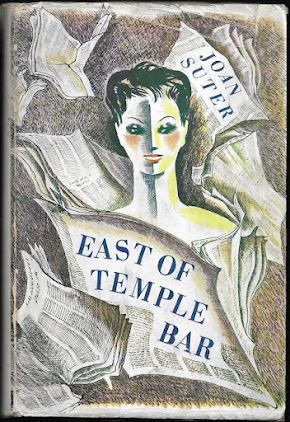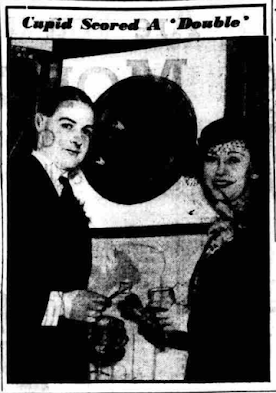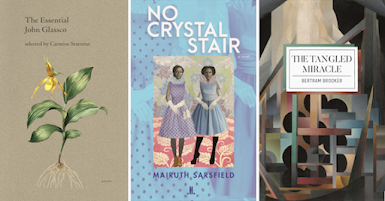Stephen Leacock
Toronto: Bell & Cockburn, 1914
310 pages
On my most recent visit to Montreal I purchased a copy of Sunshine Sketches of a Little Town. It isn't that I hadn't one already, rather that I didn't have this particular edition. A thing of beauty, thus a joy forever, it is illustrated throughout by Seth.
It follows the 1999 McClelland & Stewart coffee table book illustrated by engraver Wesley W. Bates.
All to say that Sunshine Sketches of a Little Town is still very much a thing in this country. It outshines and outsells the author's fifty other books combined. Throw in posthumous publications, if you like; I still stand by my words.
Much of the appeal of Sunshine Sketches has to do with structure. Unlike previous collections, its twelve stories – each labelled a "Chapter" – share the same characters and Canadian small town setting. It stands with this collection as the closest thing Leacock ever came to writing a novel.*
Arcadian Adventures With the Idle Rich too has stories presented as chapters. Like Sunshine Sketches, its recurring characters move about a common setting, only this time that setting is urban and American.
The first chapter, 'A Little Dinner With Mr. Lucullus Fyshe,' sets the stage by introducing the elm-shaded, Grecian-columned Mausoleum Club on Plutoria Avenue, located in a metropolis all evidence suggests is also named Plutoria. Fyshe, who is chief director of the People’s District Loan and Savings and president
of both the People’s Traction and Suburban Company and the
Republican Soda and Siphon Co-operative, has learned that a member of the English aristocracy, Duke of Dunham, is visiting the United States. Fyshe intends to mine some Old World money; the idle rich are always looking for more, it seems. Mergers are particularly effective. Fyshe himself had brought about a merger of four soda-water
companies, "bringing what was called industrial
peace over an area as big as Texas and raising the
price of soda by three peaceful cents per bottle." Things with the Duke don't go quite as he'd hoped, but there is no harm done; Fyshe's wealth continues to grow.
Indeed, the idle rich only get richer, the sole exception being their newest member, Tomlinson, the central figure of 'The Wizard of Finance' and 'The Arrested Philanthropy of Mr. Tomlinson.' Once a struggling bush farmer, he anticipates Beverley hillbilly Jed Clampett, though the gold discovered on his Ohio land is of the traditional kind, not black Texas tea. Tomlinson's newfound wealth is unwelcome and is slowly destroying his family. Son Fred, once a strapping seventeen-year-old, has taken to a sofa in the Grand Palaver Hotel, where he lies in flowered dressing gown next to a pack of cigarettes and box of chocolates with blinds drawn and eyes half-open.
 |
| American Magazine, June 1914. Illustration: F. Strothmann |
'The Yahi-Bahi Oriental Society of Mrs. Rasselyer-Brown,' the fourth chapter, was inspired by the 1912 Montreal visit of Abdu'l-Bahá, eldest son of founder the Bahá'í faith Bahá'u'lláh. As such, it has become the most notable and notorious. A nouvelle a clèf, here Abdu'l-Bahá becomes "celebrated Oriental mystic" Yahi-Bahi, a leader in the new cult of Boohooism. "Many things are yet to happen before other's begin," is a prophesy this reader has taken to heart.
Not every Arcadian adventure takes place in Plutoria. Come summer those of the city's leisure class make for the country. One such member is Newberry, who worked with Fyshe on the merger that birthed the Republican Soda and Siphon Co-operative. Mr Newberry is a firm believer in "getting right out into the bush and putting on old clothes,":
This was why he had built Castel Casteggio. It stood about forty miles from the city, out among the wooded hills on the shore of a little lake. Except for the fifteen or twenty residences like it that dotted the sides of the lake, it was entirely isolated. The only way to reach it was by the motor road that wound its way among leafy hills from the railway station fifteen miles away. Every foot of the road was private property, as all nature ought to be.
The whole country about Castel Casteggio was absolutely primeval, or at any rate as primeval as Scotch gardeners and French landscape artists could make it. The lake itself lay like a sparkling gem from nature’s workshop—except that they had raised the level of it ten feet, stone-banked the sides, cleared out the brush, and put a motor road round it. Beyond that it was pure nature.
Meanwhile, Mrs. Everleigh-Spillikins is looked after by Captain Cormorant of the United States Navy. If not Cormorant, there's Lieutenant Hawk:
Or if Lieutenant Hawk is also out of town for the day, as he sometimes has to be, because he is in the United States army, Mrs. Everleigh-Spillikins is taken out by old Colonel Shake, who is in the State militia and who is at leisure all the time.
'The Rival Churches of St. Asaph and St. Osoph' and 'The Ministrations of the Rev. Uttermust Dumfarthing,' concern Plutoria Avenue's impressive Episcopalian and Presbyterian churches. Rev. Edward Fareforth Furlong, the charismatic youngish minister of St. Asaph, appears throughout Arcadian Adventures. Whether accompanying a fair lady harpist of his choir on flute or dancing "the new episcopal tango" with the daughters of elderly parishioners, he's a popular figure – so much more fun than St. Osoph's Rev Dr McTeague with his lectures on philosophy and focus on Hegel.
 |
| Rev James Barclay (1844-1920) of St Paul's Presbyterian Church, Montreal, model for Rev Dr McTeague and grandfather of painter Marian Dale Scott. |
"All the present mortgagees will be converted into unified bond-holders, the pew rents will be capitalised into preferred stock, and the common stock, drawing its dividend from the offertory, will be distributed among all members in standing. Skinyer says that it is really an ideal form of church union, one that he thinks is likely-to be widely adopted. It has the advantages of removing all questions of religion, which he says are practically the only remaining obstacle to a union of all the churches. In fact, it puts the churches once and for all on a business basis.”
“But what about the question of doctrine, of belief?” asked Mr. Newberry.
"Skinyer says he can settle it,’’ answered Mr. Furlong.
In the final chapter, the gentlemen of the Mausoleum Club set their sights on civic politics with Lucullus Fyshe leading the charge for clean government: "He wanted, he said, to see everything done henceforth in broad daylight, and for this purpose he had summoned them at night to discuss ways and means of action."
The enduring popularity of Sunshine Sketches has us associating Leacock with small towns. This makes sense. I will note, however, that the man himself lived most of his life in cities. I won't pretend to have read all his writing, but what I have read tends to be set in urban and suburban settings. For this reason, I tend to think Arcadian Adventures With the Idle Rich is more representative of Leacock's work.
Of course, as a city boy, I may be biased. What I can say without prejudice is that it is every bit as true as The Theory of the Leisure Class, only funnier.
* In fact, Sunshine Sketches of a Little Town has been described as a novel. Canadian Book Review Annual describes it as such. On the other hand, it also has it that the book is "set in the little Town of Sunshine."
A Bonus:
 |
| The Montreal Gazette, 19 December 1914 |
The least expensive copy listed online is a 1989 New Canadian Library mass market edition offered at US$2.80 by a Dallas bookseller who dares charge US$100 in shipping to Canada. At US$778, the most expensive is a Bell & Cockburn first edition in "very good," very rare dust jacket. It is being sold by a Monterey bookseller. Shipping for this copy is US$18.
The book to buy is a jacket-less signed copy of the first UK edition, published in 1915 by John Lane. Price: £375 (w/ £18 shipping). I share the bookseller's image so as to encourage repatriation.
First editions, sans jacket, are listed for sale online at under ten dollars.




















































